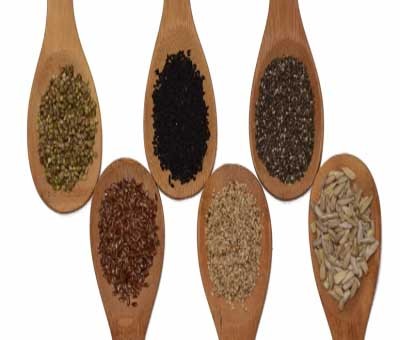
New Delhi, The UN Sasakawa Award 2022 was announced to Sustainable Ecological & Environmental Development Society (SEEDS), South Asia's foremost non-profit organisation working in the field of disaster risk reduction and climate change.
The award that recognizes excellence in reducing disaster risk was announced at the United Nations' 7th Session of the Global Platform for Disaster Risk Reduction (GPDRR) in Bali, Indonesia. Two other institutions and three individuals also received the awards along with SEEDS that received the third prize in the organization category.
The United Nations Sasakawa Award for Disaster Risk Reduction is a global award established in 1986 by the founding Chairman of the Nippon Foundation, Ryoichi Sasakawa. It was given on Wednesday night, a United Nations Disaster Risk Reduction (UNDRR) statement said on Thursday.
SEEDS has been working with the communities across South Asia for almost three decades. By combining local wisdom with modern science and technology, SEEDS has been building resilience among communities who are at risk of the climate crisis and disasters. This award recognizes SEEDS' efforts in adopting a multi-hazard approach and its commitment to accountability and transparency in responding to climate emergencies.
Recognising the efforts of the awardees, Masato Seko, Senior Programme Director of Global Issues Department, The Nippon Foundation, said: "The UN Sasakawa Award was established in 1986, well before the time of Sustainable Development Goals (SDGs), when the awareness of Disaster Risk Reduction (DRR) was limited compared to today. It is not enough to build truly inclusive and resilient societies. We must act to mitigate the negative impact of natural disasters."
"We must emphasise the need to put people at high risk at the centre for disaster management. Even in times of peace," Seko added.
"We are delighted and humbled by this award. It has been 28 years since we took up the mission to help build resilience among vulnerable communities. As we grapple with the global climate crisis, it is imperative for all of us to think of innovative ways, embrace technology as leverage; and empower people to thrive despite recurring disasters. With the 2030 horizon for the Sendai Framework, SEEDS will continue building resilient communities through a holistic, inclusive, and multi-hazard approach," said Manu Gupta and Anshu Sharma, co-founders, SEEDS.
In this nearly three-decade-long journey, SEEDS has rebuilt more than 62,000 homes, 650 schools and healthcare facilities, carried out school safety programmes for more than a quarter million children, developed disaster management plans for 500 plus communities, provided emergency assistance to more than 8,30,000 people and positively impacted the lives of more than six million people, the statement said.
The other awardees include: The Pacific Disaster Centre and Save the Children, Philippines (organizations) and Myriam Urzua Venegas, Rajib Shaw and Glenn Suerte Felipe Banaguas. Venegas is the Secretary for the Secretariat of Integrated Risks Management and Civil Protection of Mexico City, Mexico; Shaw is a professor at the Graduate School of Media and Governance, Keio University, Japan; Banaguas is the founder and president of the Environmental and Climate Change Research Institute in Philippines


.jpeg)

